Watch video about this story
Kohichiro Yamanaka, who works at the Applications Services Division at Hitachi, Ltd., was born with a hearing impairment. Nonetheless, he has overcome this handicap and run marathons both in Japan and overseas, including winning a bronze medal in the marathon event at the Deaflympics, known as the “Olympics” for the hearing impaired. What does drive him to run in marathons?
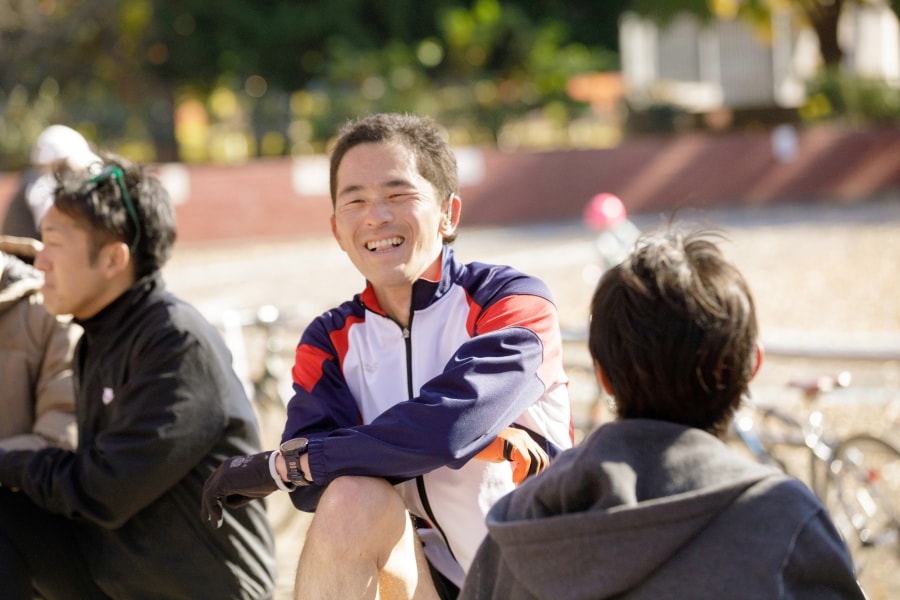
Kohichiro chatting with fellow runners during a break from training (photo: Kosei Nozaki)
On a crisp fall Saturday in October last year at the Komazawa Olympic Park in Tokyo, many runners were enjoying a jog. Among them, Kohichiro is seen running at the head of a group doing a 30 km training run.
When his fellow runners had finished a run, Kohichiro ran a further three laps around the park, a distance of about 6 km, increasing his lap pace by about 15 seconds from the 3 minutes and 45 seconds per lap that he had been running up to that point.
Masashi Sasaki, a running friend of Kohichiro’s and who has been improving his time through friendly rivalry for the past nine years, is amazed at Kohichiro's "mental strength to push himself."
Sasaki added: "He sets a target time for each marathon that he competes in, makes a detailed training plan, and steadily works toward achieving his target. Kohichiro sometimes collapses after crossing the finish line at training. I have never seen anyone run so hard that they collapse during training."
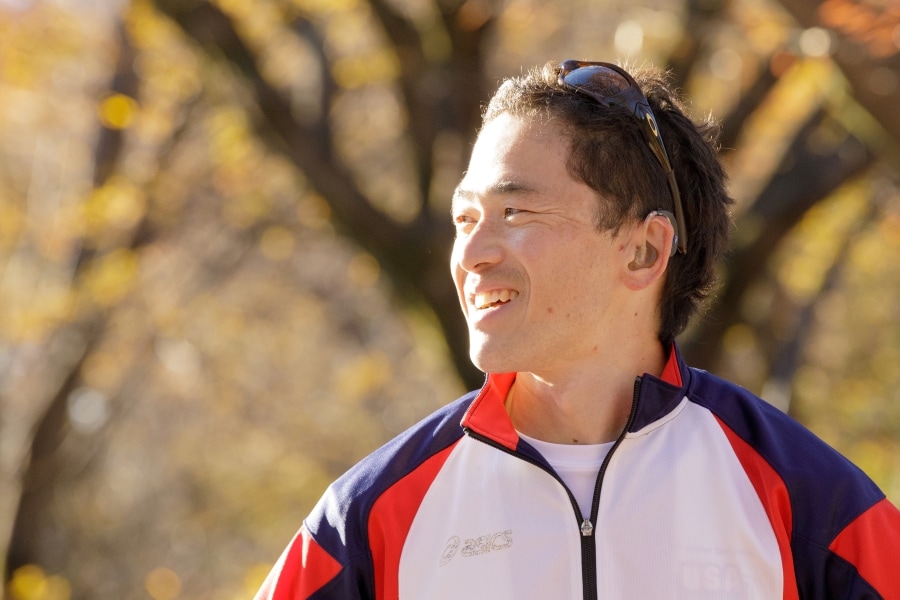
Kohichiro converses by using a hearing aid in his left ear and by lipreading (Photo: Kosei Nozaki)
Kohichiro's hearing impairment was discovered at the age of one when his preschool teacher noticed he might have hearing problems. As a result of tests, it was found that he had a congenital sensorineural hearing loss, a disability in which it is difficult to hear sounds due to problems with the functioning of the inner ear and the nerve system deeper within it.
Subsequently, his parents enrolled him in the Japan Oral School for the Deaf (in Machida, Tokyo) at the age of two. He studied at this private school for the hearing impaired, which has an educational policy of being able to converse without using sign language, up until junior high school.
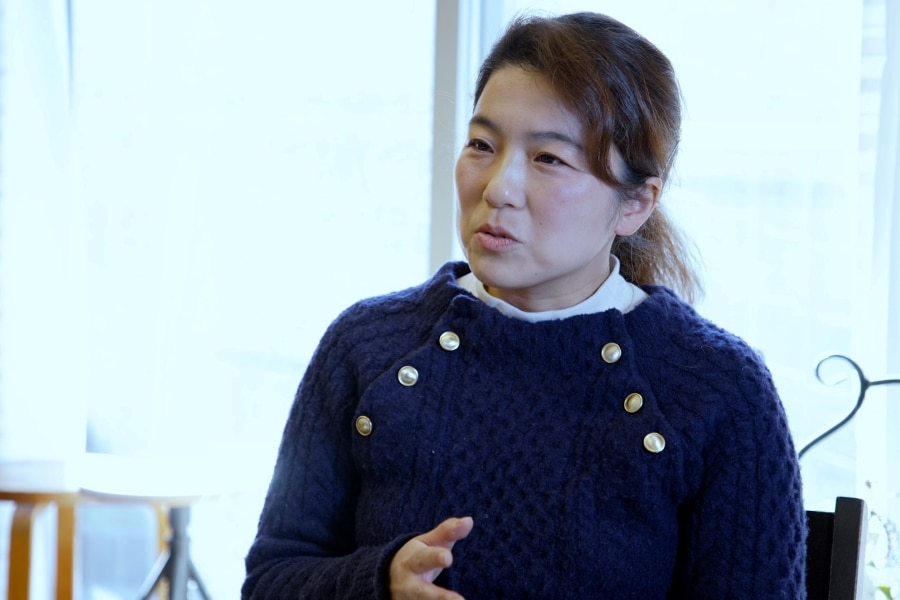
Kohichiro’s older sister, Junko, works as a teacher at the school for the hearing impaired
Kohichiro lives with his older sister, Junko, who is a teacher at the Japan Oral School for the Deaf. She reflected on the way her late parents raised her and her brother.
Junko said: "My parents’ view of education was to trust the child and wait. My mother, who studied developmental psychology at college, used to say, 'It’s no good trying to force a child to do something. It's better to let them do what they want to do.'"
As a result, there were times when Kohichiro did not do any homework during summer vacation because he was too busy playing with his favorite games and blocks. But then Junko noted: "He’s single-minded when he works toward a goal."
She continued: "My younger brother used to play computer games every day, but when he decided to take the tests to enter a regular high school, he put all his games away and started studying hard, saying, 'I’m done playing games from today.'"
Kohichiro’s efforts paid off—he was accepted into a regular public high school in Tokyo as per his goal, and he enjoyed a full student life in a new environment.
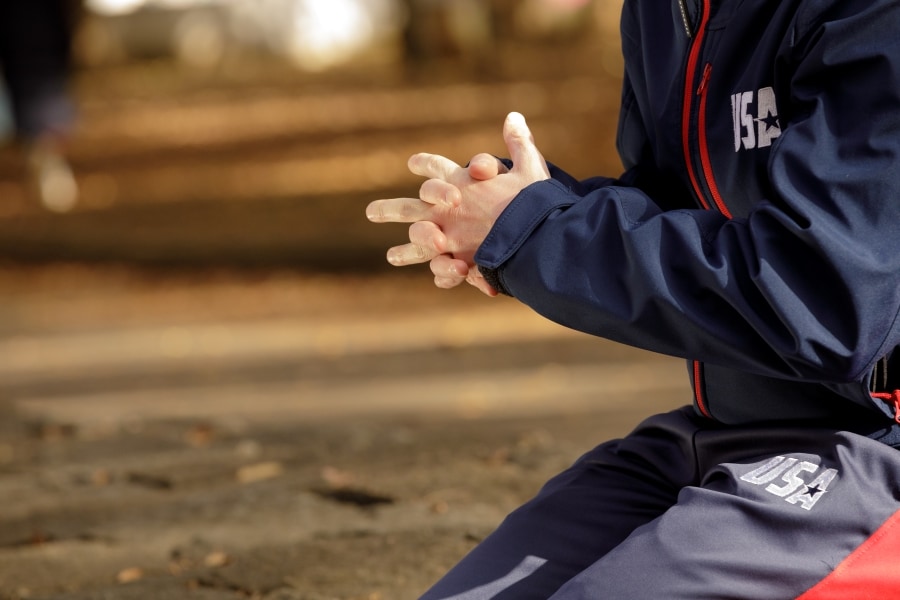
Kohichiro wore his favorite tracksuit, which he exchanged with a member of Team USA, to the interview
(Photo: Kosei Nozaki)
Junko said: "Hearing impairment is communication impairment." She also says frankly that there were times when her brother had trouble communicating even within his own family.
"My father, who was often away from home due to his work, sometimes had difficulty understanding my brother's expressions and pronunciation. So I would tell him, 'Dad, he is saying this,' as if I were his interpreter. I think my brother got frustrated because he couldn't communicate as well as those who could hear."
Kohichiro first wore a hearing aid when he was two years old. He was able to hear some sounds, and after going to school and learning lipreading, he was able to understand people who spoke to him face to face.
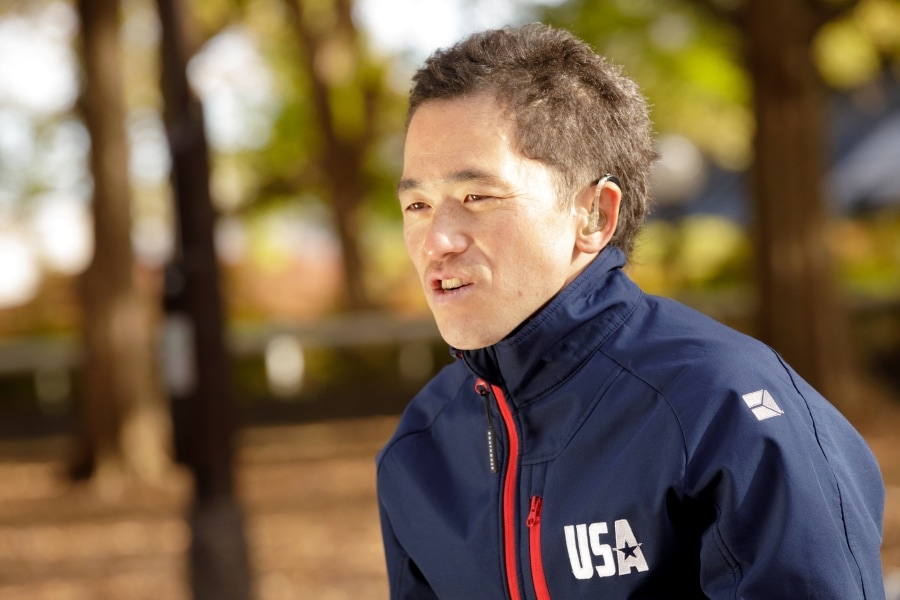
Kohichiro was troubled by his deafness when he was an adolescent (Photo: Kosei Nozaki)
Nonetheless, he found it difficult talking with people who do not move their mouths much or on the phone when he could not see the other person’s face. Kohichiro also cannot understand announcements over the speakers in stores and train stations.
"I don't know what the conductor is saying over the speakers when the train suddenly stops. Now that I have a smartphone, I show the screen of my phone to others and ask them to explain the situation to me."
Kohichiro says that now he is resigned to being hearing impaired. "I can’t understand information right away. That’s what it means to be hearing impaired." But his sister reveals that being deaf troubled him when he was an adolescent.
"My brother used to gripe to my mother, 'Why can’t I hear?' But he seemed to accept it. I think he knew that making a fuss wasn't going to make him hear."
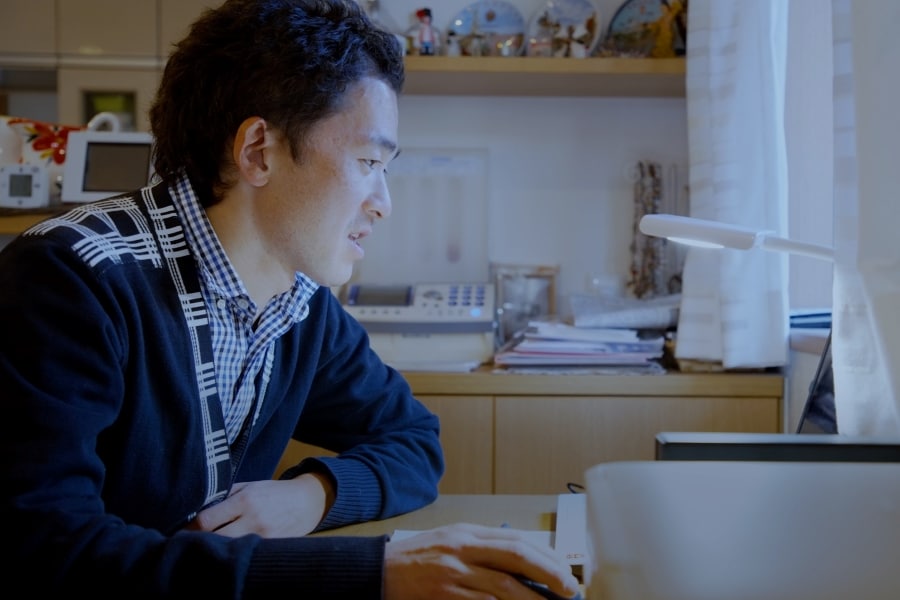
Kohichiro working from home
After graduating from college in 2004, Kohichiro got a job at Hitachi, Ltd. because he believed that even hearing-impaired people could contribute to resolve social issues through systems development.
His current job is to operate and manage a system development methodology that catalogs Hitachi's system development knowledge. This is a service for Hitachi Group engineers, and Kohichiro maintains the manual and provides consultation on how to use it. He says that his job is very rewarding:
"No matter how difficult an inquiry is, I enjoy consulting with my teammates and leveraging their knowledge to figure out how I can respond by myself."
Yuko Sugihara, one of Kohichiro’s colleagues, commented on Kohichiro's work style: "When I ask him to do things in a certain order, he does so very carefully. I have the impression that he is an earnest worker."
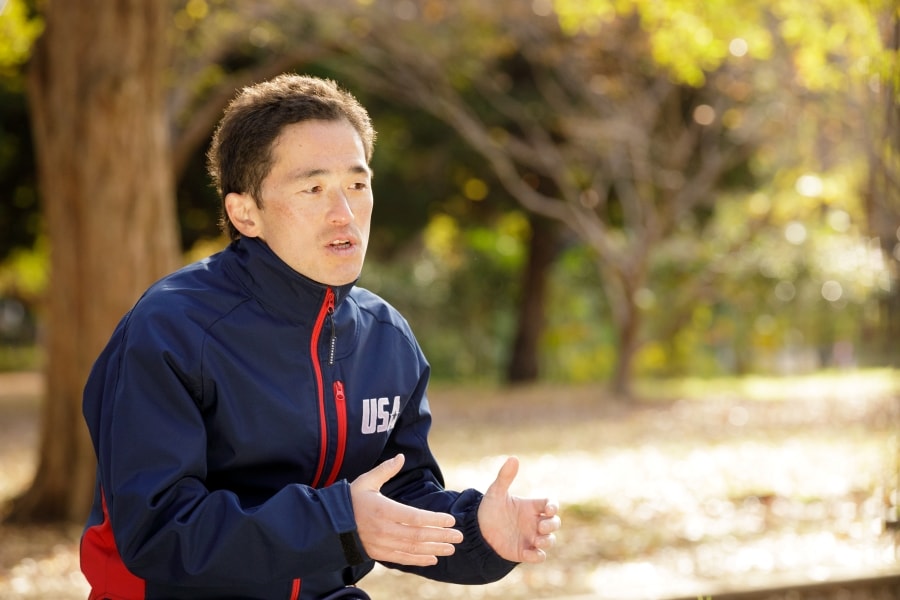
Kohichiro faced a new sense of disorientation due to the pandemic (Photo: Kosei Nozaki)
However, due to the COVID-19 pandemic, Kohichiro had to start working from home, which gave him a new sense of disorientation.
"What could have been resolved in about 15 minutes if I talked face-to-face with the other person ends up taking a long time over chat tools and emailing back and forth because I can't talk to them on the phone."
Nevertheless, he is tackling these challenges by using the latest digital technologies, such as the automatic transcription feature built into online meeting tools.
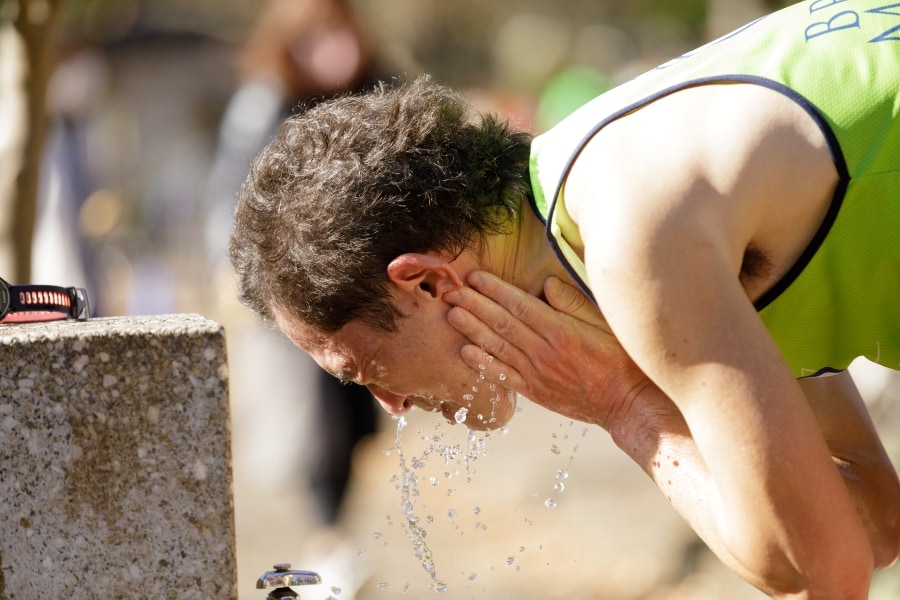
Kohichiro’s life significantly changed when he started running (Photo: Kosei Nozaki)
It was running that changed Kohichiro’s life.
Kohichiro first became interested in long-distance running when he was in third grade at junior high school. He competed at a track and field meet of the schools for the deaf in Tokyo, winning the 1500m race in under 5 minutes. Thanks to this experience, he joined the track and field club in high school. In his third year of high school, he won a prize at the district championships but said he was "completely out of his depth" at the Tokyo championships, and this made him keenly aware of the difference in level.
In college, he joined a triathlon club, but when he entered the workforce, he took a break from running. He resumed running three years after he joined Hitachi. "I wasn’t getting enough exercise, so I wanted to do something healthy," he said, so he joined a running club for amateur runners.
In the beginning, he could barely keep up with his teammates, but as he competed with others who were running as fast as him, he quickly became faster. Now that he is working from home, he runs about 10km around his house almost every day after work.
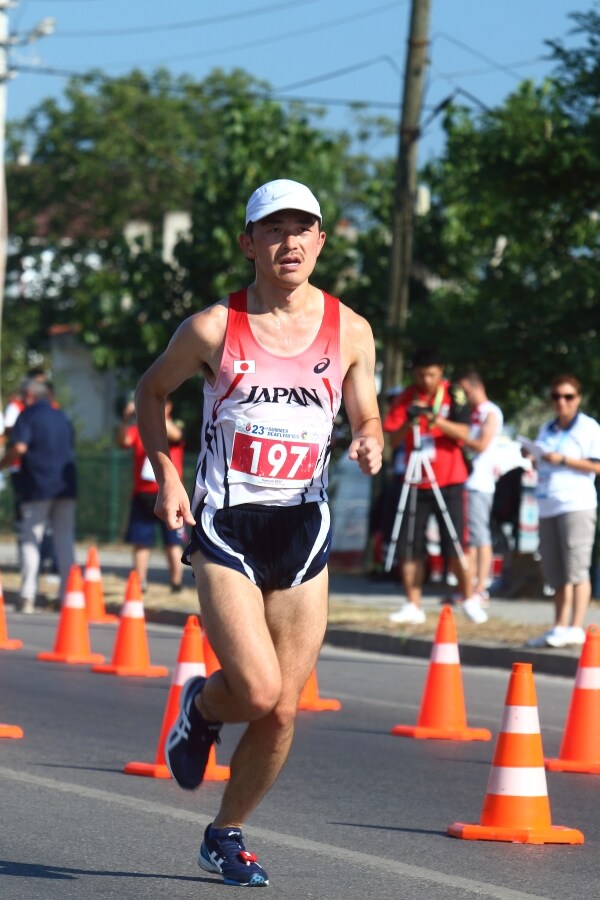
Kohichiro running at the 2017 Deaflympics held in Samsun, Turkey (photo: Japanese Federation of the Deaf)
Only three years after starting to run again, Kohichiro ran a full marathon in under 2:45:00, and in 2008, he entered the Fukuoka International Open Marathon Championship in which only a limited number of runners were eligible to participate. As he set the excellent time of 2:28:00, a person from the Japan Deaf Athletics Association approached him, asking him if he would like to represent Japan at the Deaflympics.
The Deaflympics is an international sports meet held every four years for the hearing impaired. Kohichiro went to the Deaflympics in Taipei in 2009 where he finished fourth in the marathon, and four years later in Sofia, he placed third, winning a bronze medal. However, the race took an unexpected turn. Kohichiro explains:
"I was following the runner in front of me who took the wrong route, and hence I also took the wrong route. I still had half of the race left to run, so I thought, 'If I lose heart, I lose,' and I didn't give up."
Even more valuable than the medal was the opportunity to meet hearing-impaired runners from around the world. They exchanged badges and tracksuits, and to this day they still keep in touch via e-mail.
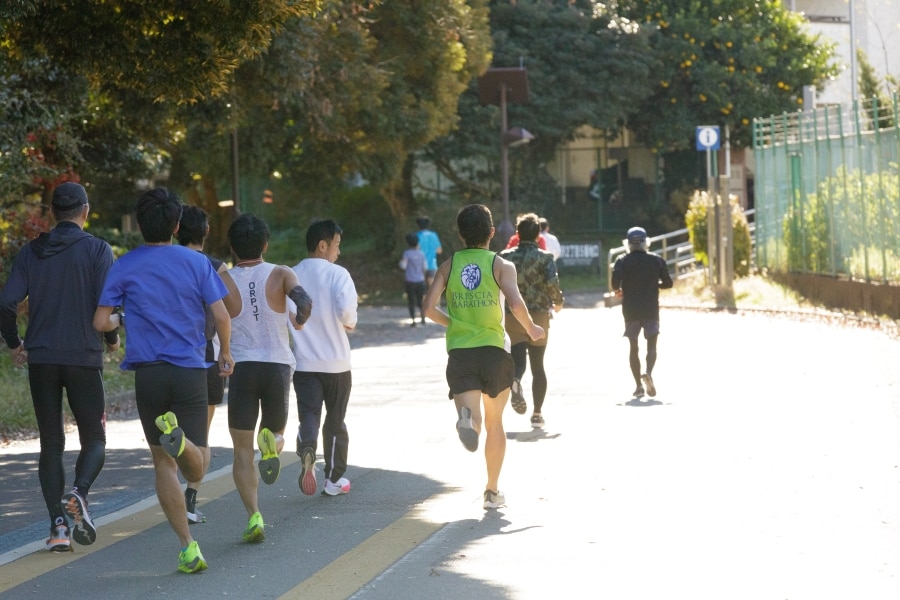
Kohichiro plans on continuing to take on new challenges (Photo: Kosei Nozaki)
The next Deaflympics are scheduled to be held in Brazil in May 2022. "If I can make it to the next Deaflympics, I'm aiming to win gold or silver," said Kohichiro, with conviction.
Kohichiro's best time is 2:25:40, which he set at the Lake Biwa Mainichi Marathon in March 2020. At the Hofu Yomiuri Marathon in December last year, he finished with a time of 2:26:32, which is well under his goal of 2:30:00. Expectations are thus high for Kohichiro to win a medal.
Taro Sakisaka, Kohichiro’s boss, has known him since he joined the company and had the following to say:
"I want him to run for the rest of his life. If people knew that an amazing runner with a hearing impairment is working at Hitachi's IT department, it would be a source of pride for our company, and I think it would inspire a lot of people."
Kohichiro is growing in spirit as he gets older. "I sometimes train with people who are aiming for the top, and I hope we can stimulate each other to get better," he said, on striving for greater heights and continuing to run.